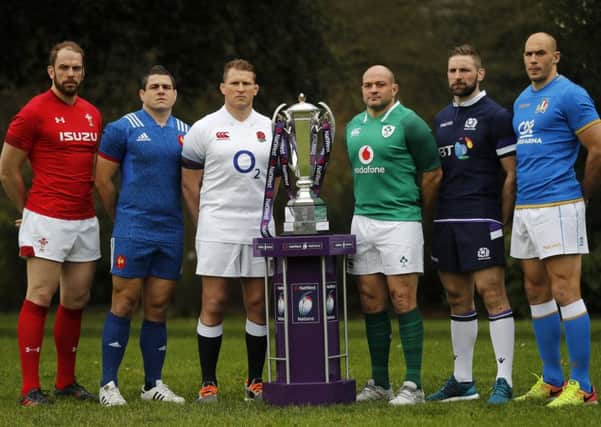Iain Morrison: Why I'm tipping Ireland to win Six Nations


Look at a couple of numbers. For 26 years between 1982 and 2008, Scotland lost 16 times in succession to the Wallabies. Now the Scots have beaten them in four of their last seven fixtures. That is a sea change in relative fortunes.
Ireland didn’t just beat the once mighty Springboks in November, they pulverised them, running up a record 38-3 score. Only New Zealand continue to display their habitual excellence and even then they could only draw against the Lions last summer, which is not what anyone was expecting.
Advertisement
Hide AdAdvertisement
Hide AdEurope’s great Six Nations showpiece used to be a secondary sporting affair. The crowds, atmosphere and money it generated were phenomenal but the actual rugby was a little… meh.
Now England, Ireland and Scotland are ranked in the top five countries in the world, Wales and France inside the top ten and only Italy are down in 14th place, two places behind Georgia.
The funny thing about this northern uprising is that while the Sanzar unions expected it to be led by England or France (or both) it is instead Ireland that is in the van; a nation who used to take pride in their chaotic approach to sport.
They have four natural provinces, none of whom are weak, and a youth system that is the envy of the world. Max Boyce used to boast about the secret fly-half factory located in the valleys, but Ireland surely has a manufacturer of back row forwards somewhere just outside Dublin that hand-crafts ballsy breakaways who are three quarters elbow and two thirds attitude.
There is an end-of-an-era feeling about Warren Gatland’s time with Wales, who, along with England and Scotland, are decimated by injuries which have become the bane of the game. Italy have improved, but are still a way off the mark. Scotland are exciting, but their style has a lot of moving parts, any one of which may throw a cog.
French rugby is a basket case. Too much money and too many foreigners in the club game, under-performing national team and who cares? Obviously not enough fans, who are happy to support Toulon or Clermont or Racing and let Les Bleus do what they will. France boasts too much talent not to claim the odd scalp, but they are too inconsistent to win anything.
Eddie Jones has worked his magic with England, but there is still a feeling that, especially in the absence of some big beasts, the players don’t know exactly how they want to play the game. It is an accusation that could never be levelled at Joe Schmidt’s Ireland squad.
His personal style may not win him many friends but modern rugby is a brutal business and, in Schmidt, Ireland have a coach who demands the very best from his players and usually gets it.
So the best coach in the tournament has the best squad of players at his disposal, which is why Ireland start this tournament as clear and obvious favourites, although a slam is far from certain.